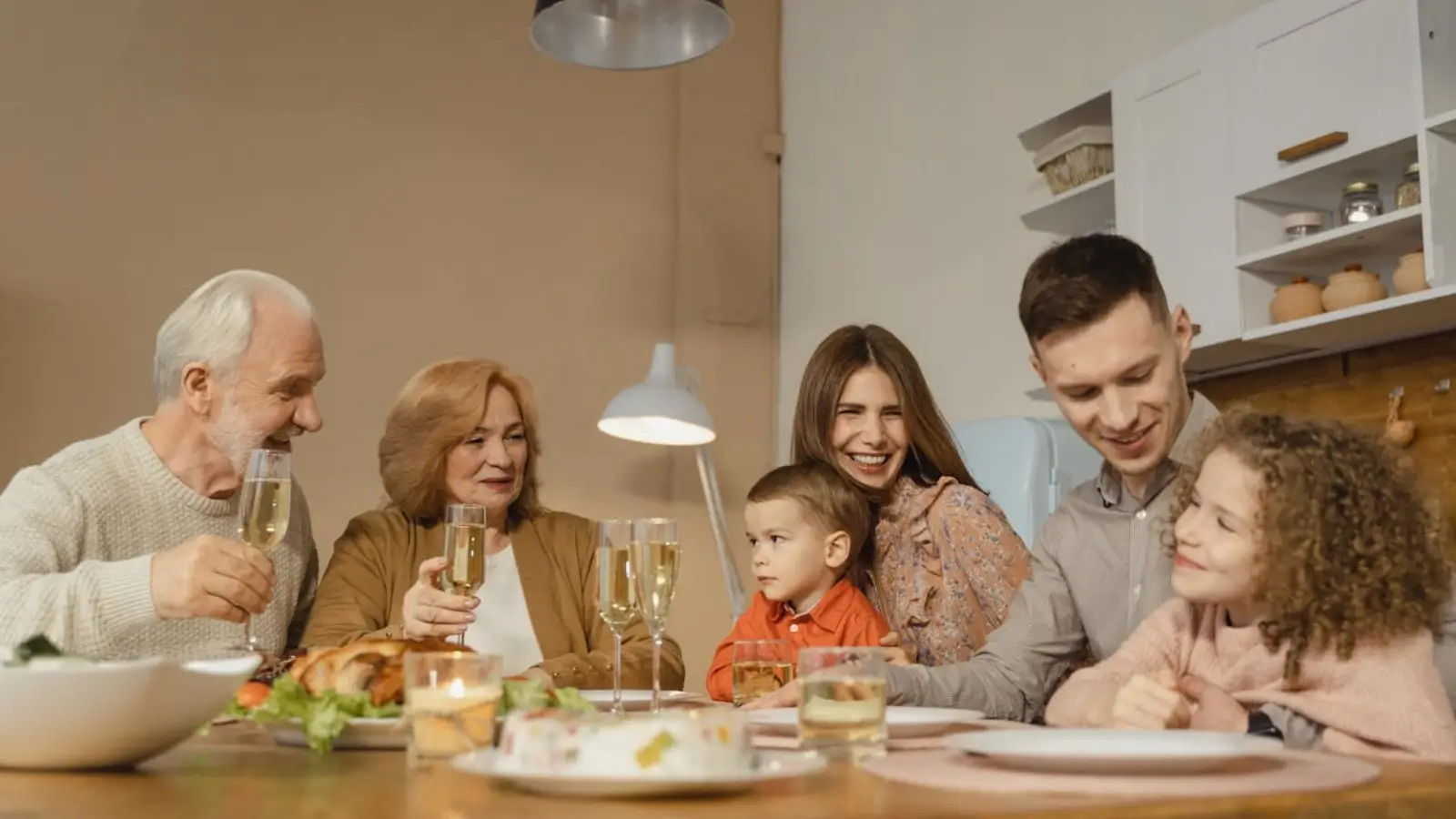Multi-generational living has experienced a remarkable renaissance in the UK, driven by economic pressures, changing cultural attitudes, and practical benefits that many families are only beginning to appreciate. This living arrangement, where multiple generations share a single home or property, challenges traditional notions of independence while creating opportunities for mutual support, financial advantages, and strengthened family bonds that surprise many who initially view it as a compromise rather than a choice.
The shift towards multi-generational households reflects both necessity and recognition of genuine lifestyle benefits that extend far beyond simple cost savings. From enhanced childcare arrangements to improved elderly care, from shared household responsibilities to collective financial strength, these living arrangements often prove more rewarding than anticipated. Ryde estate agents increasingly encounter families actively seeking properties suitable for multi-generational living, recognising the trend as a long-term lifestyle choice rather than a temporary economic solution.
1. Financial Synergies and Shared Economic Benefits
The most obvious advantage of multi-generational living involves shared housing costs, but the financial benefits extend far beyond simple expense splitting. Families can access larger, better-located properties by combining resources, often achieving living standards that individual family units could not afford independently whilst building collective wealth through property ownership.
Utility costs decrease proportionally more than occupancy increases, as heating, lighting, and basic services serve multiple family members efficiently. Council tax, insurance, and maintenance costs spread across multiple contributing adults create significant per-person savings whilst improving overall household financial resilience.
Shared transportation needs enable families to reduce vehicle ownership costs while improving access to cars when needed. One quality family vehicle often serves multiple generations more efficiently than several individual cars, creating substantial savings on purchase costs, insurance, maintenance, and depreciation.
Bulk purchasing for household essentials, food, and services creates economies of scale that reduce per-person living costs whilst improving quality through accessing premium products and services that individual households might find unaffordable.
2. Enhanced Childcare and Educational Support
Multi-generational households provide unparalleled childcare flexibility that enables parents to pursue career opportunities whilst ensuring children receive family care rather than institutional alternatives. Grandparents often provide enthusiastic, loving childcare that creates strong family bonds whilst reducing commercial childcare costs significantly.
Educational support becomes multi-layered, with grandparents often providing homework assistance, cultural knowledge, and life experience that enriches children's development beyond formal schooling. Different generations bring varying perspectives and expertise that create comprehensive learning environments within family settings.
Emergency childcare becomes seamless when multiple adults share households, eliminating the stress and expense of finding last-minute care when parents face work commitments or unexpected situations. This flexibility enables career advancement whilst maintaining family stability.
Cultural transmission occurs naturally when children grow up with grandparents, learning family history, traditions, and values through daily interaction rather than occasional visits. This cultural continuity strengthens family identity whilst providing children with a deeper understanding of their heritage.
3. Elderly Care and Health Benefits
Aging in place becomes possible for elderly family members who might otherwise require expensive care facilities or face isolation in independent living situations. Multi-generational households enable families to provide appropriate support whilst maintaining elderly members' dignity and independence within familiar environments.
Health monitoring improves through daily interaction, enabling early detection of health changes that might be missed in independent living situations. Family members can observe medication compliance, nutrition quality, and general well-being whilst providing immediate assistance when needed.
Social isolation, a significant health risk for elderly people, becomes virtually impossible in well-functioning multi-generational households where daily interaction and shared activities maintain mental stimulation and emotional connection that supports overall health and life satisfaction.
Medical appointment coordination and healthcare management become shared responsibilities, reducing stress on individual elderly family members while ensuring comprehensive care through multiple advocates who can accompany appointments and manage complex healthcare requirements.
4. Shared Household Responsibilities and Life Balance
Domestic labour distribution across multiple adults creates more manageable household responsibilities while enabling specialisation based on individual skills and preferences. Some family members might prefer cooking whilst others handle maintenance, creating efficient household management systems.
Childcare duties shared among multiple adults reduce parental stress whilst providing children with varied interaction and supervision. Parents can maintain careers and personal interests knowing that responsible adults are available for children's needs and supervision.
Property maintenance becomes a collaborative effort, with different family members contributing various skills and labour that reduces external service costs whilst maintaining properties to higher standards. Elderly family members often possess valuable maintenance knowledge whilst younger members provide physical capability.
5. Enhanced Security and Community Safety
Home security improves significantly when properties are rarely empty, deterring opportunistic crime whilst ensuring someone is usually available to receive deliveries, monitor property, and respond to emergencies. Multiple residents create natural surveillance that insurance companies often recognise through reduced premiums.
Emergency preparedness benefits from multiple adults who can coordinate responses to various emergency situations, whether medical crises, severe weather, or other challenges requiring immediate action and decision-making from responsible adults.
Vehicle security and maintenance improve when multiple drivers share responsibility for family vehicles, ensuring regular use, maintenance awareness, and security monitoring that extends vehicle life while reducing theft risks.
6. Social and Emotional Advantages
Emotional support networks strengthen dramatically within multi-generational households where family members provide diverse perspectives, life experiences, and emotional resources during challenging periods. Multiple sources of advice and comfort create resilience that individual nuclear families often lack.
Social connections multiply when different generations contribute their friend networks and community relationships, creating broader social opportunities whilst reducing isolation risks that affect both young and elderly family members in separate living arrangements.
Celebration and tradition sharing become richer when multiple generations participate in holidays, birthdays, and cultural events within shared households. These celebrations often become more meaningful and elaborate while reducing individual family planning burdens.
7. Practical Property and Lifestyle Benefits
Property utilisation improves dramatically when multiple family units share larger homes, ensuring rooms are used efficiently whilst reducing per-person space costs. Guest rooms, home offices, and speciality spaces can serve multiple purposes across different family members.
Technology support across generations benefits everyone, with younger family members providing technical assistance whilst older members share traditional knowledge and skills. This knowledge exchange enhances everyone's capabilities whilst building mutual respect and understanding.
Transportation coordination becomes more efficient when multiple family members can share journeys for shopping, appointments, and social activities, reducing individual travel costs while providing company and assistance for elderly family members.
Multi-generational living arrangements offer compelling benefits that often exceed expectations, creating lifestyle improvements and financial advantages that justify the coordination efforts required while strengthening family relationships and providing security for all generations involved.
















